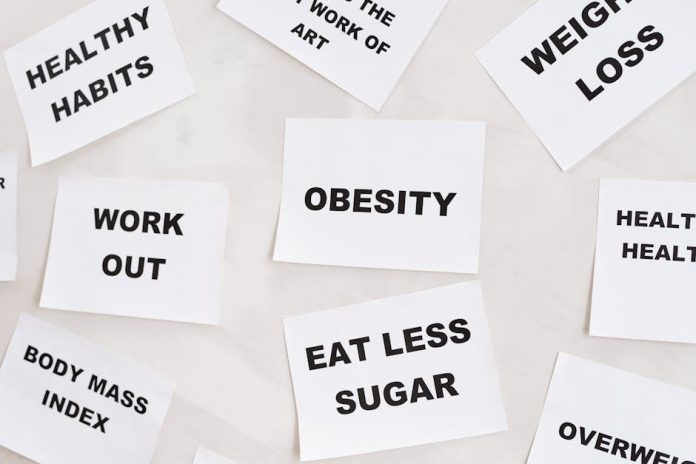In the journey of weight loss, there often comes a time when progress seems to stall, despite continued efforts. This phase, known as a weight loss plateau, can feel like a perplexing puzzle in the midst of an otherwise successful quest for health and wellness. The scale refuses to budge, and motivation can start to wane, leaving many feeling frustrated and uncertain about the next steps. Yet, these plateaus are not roadblocks but rather opportunities for reflection and adjustment. In this article, we will explore effective strategies to navigate these temporary standstills, helping you to recalibrate your approach and reignite your progress. Whether you’re a seasoned fitness enthusiast or just beginning your weight loss journey, understanding how to manage these plateaus can empower you to continue your path with renewed determination and insight.
Understanding the Science Behind Plateaus
When embarking on a weight loss journey, encountering a plateau can be both perplexing and frustrating. These plateaus occur when your body adjusts to the changes in your diet and exercise routine, reaching a new equilibrium. Scientifically, plateaus happen due to a variety of physiological adaptations. As you lose weight, your metabolism may slow down because your body requires fewer calories to maintain a smaller frame. Additionally, hormonal changes can also play a role, as levels of hormones like leptin and ghrelin adjust to your new weight, affecting hunger and satiety.
Understanding these mechanisms can help you devise effective strategies to overcome them. Here are some key factors to consider:
- Metabolic Adaptation: As your caloric needs decrease, ensure your intake aligns with your new requirements.
- Exercise Intensity: Adjust your workout routine to include more varied and intense exercises to challenge your body.
- Mindful Eating: Pay attention to hunger cues and avoid eating out of habit or boredom.
- Stress and Sleep: Manage stress levels and ensure adequate sleep, as both can impact weight loss.
By acknowledging these factors and making necessary adjustments, you can effectively navigate through the plateau phase and continue progressing towards your goals.

Revamping Your Exercise Routine for Better Results
Encountering a weight loss plateau can be discouraging, but it’s a signal that it’s time to refresh your exercise regimen. Start by assessing your current workouts: Are they varied enough? Consistent routines might lead to stagnation. Introduce new elements to your sessions. Consider incorporating different types of exercises, such as:
- Interval Training: Mix high-intensity bursts with low-intensity recovery periods to boost metabolism.
- Strength Training: Focus on building muscle mass, which increases calorie burn even at rest.
- Flexibility and Balance: Add yoga or pilates to improve muscle elasticity and overall body awareness.
Alongside modifying your workout types, adjust the duration and intensity. If you’ve been comfortable with 30-minute sessions, challenge yourself with longer or more vigorous workouts. Additionally, evaluate your rest days; sometimes, your body needs more recovery time to overcome plateaus effectively. A fresh approach can rejuvenate your enthusiasm and propel you towards your goals.

Nutrition Tweaks to Jumpstart Your Progress
Breaking through a weight loss plateau often requires a fresh perspective on your dietary habits. Small, strategic adjustments can reignite progress and maintain motivation. Consider incorporating more high-fiber foods into your meals, such as fruits, vegetables, and whole grains. Fiber not only aids digestion but also helps you feel fuller longer, reducing the temptation to snack unnecessarily.
Another effective strategy is to balance macronutrients. Sometimes, simply tweaking the ratio of proteins, fats, and carbohydrates can make a significant difference. For instance, increasing protein intake can boost metabolism and preserve muscle mass during weight loss. Additionally, pay attention to your hydration levels. Often overlooked, staying well-hydrated can improve energy levels and curb overeating. Here are a few more tips to consider:
- Cycle your calories by alternating between higher and lower calorie days to keep your metabolism guessing.
- Mindful eating: Focus on the quality of your meals and savor each bite to enhance satisfaction and reduce overeating.
- Track your intake: Use a food diary or app to monitor what you consume, identifying areas where adjustments can be made.
Mindful Practices to Overcome Stagnation
In the journey of weight loss, hitting a plateau can feel like an insurmountable wall. However, embracing mindful practices can help you navigate through this phase with grace and patience. Begin by reflecting on your progress so far, acknowledging the strides you’ve made, rather than focusing solely on the numbers. This shift in perspective can foster a more positive mindset, essential for overcoming stagnation.
- Practice gratitude: Take a moment each day to jot down aspects of your journey you’re thankful for, which can include improved energy levels or healthier habits.
- Engage in mindful eating: Pay attention to your body’s hunger cues, savor each bite, and appreciate the flavors and textures of your meals.
- Incorporate meditation: Even a few minutes of daily meditation can help reduce stress and promote a balanced approach to your goals.
Remember, the essence of mindful practices is to cultivate awareness and acceptance of your present state, encouraging a more compassionate and sustainable approach to weight management.
Concluding Remarks
As you embark on the journey to navigate and overcome weight loss plateaus, remember that progress is not always linear, and that’s perfectly okay. Like a ship adjusting its sails to catch the wind, sometimes we need to recalibrate our efforts and strategies to continue moving forward. Embrace the plateau as an opportunity for growth, reflection, and innovation in your approach to wellness. By staying patient, persistent, and open to change, you can transform these temporary pauses into stepping stones toward your ultimate goals. So, chart your course with confidence, knowing that every step you take is a valuable part of your unique journey to a healthier you.


































